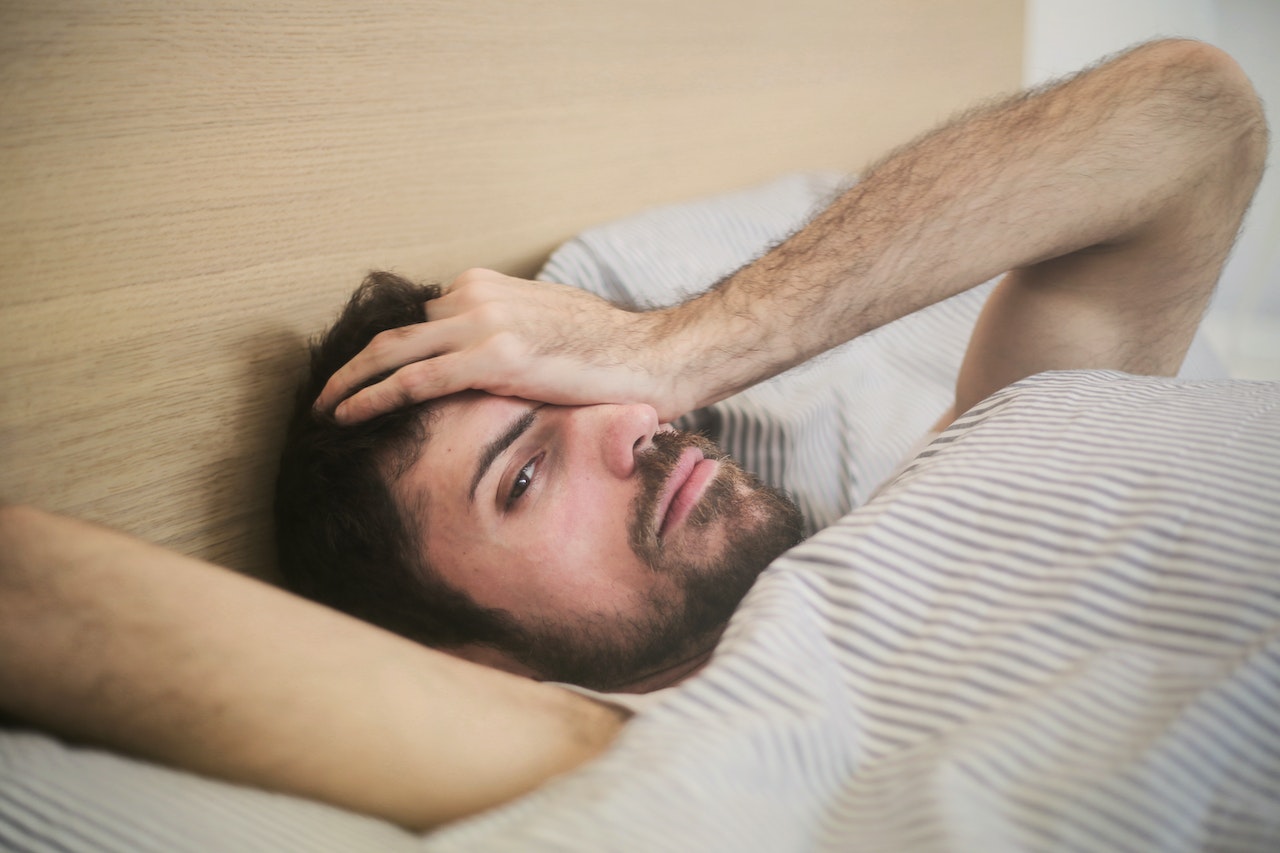Anxiety, that delightful little gremlin that whispers sweet nothings of doom into our ears. Let’s face it, in today’s fast-paced world, who doesn’t enjoy the occasional (read: constant) bout of heart-pounding, sweat-inducing panic over absolutely everything? But, for those peculiar souls who prefer a calmer existence, here’s some advice that’s as genuine as it is sprinkled with sarcasm.
What Exactly is Anxiety and Why Does It Love Us So Much?
Before we dive into the art of chilling out, let’s take a moment to understand the beast we’re dealing with. Anxiety, the unwelcome guest in our mental party, is more than just feeling stressed or worried. It’s like your brain’s overzealous security system, constantly on high alert, making mountains out of molehills and sometimes seeing danger where there is none. Fun, right?
So, what is anxiety, really? In technical terms, it’s your body’s natural response to stress. It’s the feeling of fear or apprehension about what’s to come. First day at a new job, giving a presentation, or even going on a date – these are all classic triggers. But when anxiety stops being an occasional visitor and decides to move in permanently, that’s when it becomes a problem. I’m talking about an anxiety disorder here, where the worry doesn’t subside and can actually get worse over time.
Now, let’s talk causes. Why does anxiety latch onto some of us like a clingy friend? Well, there isn’t a one-size-fits-all answer here, but several factors play into this delightful cocktail of nervousness:
- Genetics: Just like your eye color, anxiety can run in families. If your family tree includes members with anxiety disorders, you might have a higher chance of developing one too.
- Brain Chemistry: Neurotransmitters, our brain’s chemical messengers, are involved in how we process emotions. Imbalances in these chemicals, particularly serotonin and dopamine, can contribute to anxiety.
- Life Events: Traumatic events, big life changes, or even chronic stress can be powerful triggers. If you’ve experienced things like abuse, the death of a loved one, or major financial stress, you might be more prone to anxiety.
- Health Issues: Sometimes, anxiety is a side effect or symptom of an underlying health problem. This can include heart disease, diabetes, or hormonal imbalances, to name a few.
- Personality Factors: Certain personality types are more prone to anxiety disorders. If you’re a perfectionist, tend to be overly self-critical, or have low self-esteem, your risk might be higher.
- Other Mental Health Disorders: Anxiety often doesn’t like to party alone. It’s common for people with other mental health disorders, like depression, to also experience anxiety disorders.
Understanding anxiety is the first step in managing it. It’s not about being weak or lacking willpower; it’s a complex interplay of genetic, environmental, and psychological factors. And while we can’t always control the external factors that feed into anxiety, we do have a say in how we respond to them.
Now that we’ve gotten cozy with our frenemy anxiety, let’s move on to some ways to show it the door, shall we?
How to Reduce Anxiety
1. Breathe Like You Actually Mean It
Yes, I know, you’ve heard it a million times. “Just breathe!” they say, as if you haven’t been doing exactly that every single moment of your life. But here’s the kicker: there’s breathing, and then there’s breathing. Deep breathing isn’t just a cliché your yoga-instructor friend keeps harping on about – it’s science, folks. When you take deep, intentional breaths, you’re basically telling your body, “Hey, it’s cool, we’re not being chased by a lion.” This triggers the parasympathetic nervous system – that’s the chill-out zone of your body – to take the wheel, reducing the heart rate and lowering blood pressure. So, next time you’re feeling like a tightly wound spring, try some deep breathing exercises. Inhale for four counts, hold for seven, exhale for eight, and watch as your anxiety tries to keep up with your newfound zen.
2. Move Your Body (Even if it’s Just to Get More Snacks)
Exercise is the miracle cure we all love to hate. But before you roll your eyes and scroll past, hear me out. You don’t need to transform into a gym junkie or run marathons (unless you’re into that sort of thing). A simple walk, a bit of stretching, or some light dancing in your living room (bonus points if it’s to 80s hits) can do wonders. Physical activity releases endorphins, those feel-good hormones that act like natural painkillers and mood elevators. Plus, it’s a great excuse to get up and grab some snacks – for energy, obviously.
3. Become a Mindfulness Guru (or Just Try Not to Multitask for Once)
Mindfulness – it’s not just for monks and those with an overabundance of scented candles. Being mindful simply means being present in the moment. It’s about noticing your surroundings, your feelings, and your thoughts without judgment (yes, even that thought about how ridiculous mindfulness sounds). When you’re mindful, you’re not ruminating about the past or fretting about the future. You’re just there, in the now, possibly realizing how nice it is not to be freaking out about something for a change.
4. Turn into a Sleep Aficionado
Ah, sleep – that elusive state of consciousness where you’re supposed to rest, but instead, you find yourself hosting a mental rave party at 3 AM. Here’s a groundbreaking thought: maybe, just maybe, getting enough sleep could help with your anxiety. Crazy, right? Establish a sleep routine that even Sleeping Beauty would envy. This includes winding down before bed (no, scrolling through social media doesn’t count), keeping your bedroom as a sleep-only sanctuary (sorry, work emails), and trying to go to bed and wake up at the same time every day. Yes, even on weekends. Your brain and body will thank you by dialing down the anxiety meter.
5. Nourish the Machine (AKA Your Body)
Let’s talk food. And no, I’m not suggesting you become one of those people who only eat kale and quinoa. But, what you shove into your food hole does impact your anxiety levels. Too much caffeine can make you jittery and anxious (shocking, I know), while alcohol might seem like a good idea at the time, but it’s really just borrowing happiness from tomorrow. Try to eat a balanced diet – you know, fruits, veggies, whole grains, all that good stuff. Think of it as fuel for your anti-anxiety superpowers.
6. Socialize Like You’re Not a Hermit (Even If You Want To Be)
Human interaction: it’s not just a torture method for introverts. Turns out, talking to people – yes, real, live humans – can actually reduce anxiety. Social support is a huge factor in managing stress and anxiety. So, go ahead, call a friend, join a club, or just chat with your barista. But remember, quality over quantity. Surrounding yourself with positive, supportive people is like having your own cheer squad – minus the pom-poms and awkward chants.
7. Laugh Like You Mean It (Even If It’s Just At This Article)
Never underestimate the power of a good laugh. It’s like a workout for your insides and a vacation for your brain. Laughing decreases stress hormones and increases immune cells and infection-fighting antibodies. So, watch a comedy, read a funny book, or hang out with that friend who always has a ridiculous story to tell. If all else fails, just laugh at how absurdly serious we take life sometimes.
Remember, the journey to less anxiety is a marathon, not a sprint. So take it one step, one breath, and one laugh at a time. Stay chill, my friends!
Pro Tips: Extra Ammo in Your Battle Against Anxiety
Just when you thought you were armed to the teeth with anxiety-busting strategies, here come a few more arrows for your quiver. Because, let’s be honest, when it comes to anxiety, you can never have too many tricks up your sleeve.
- Journaling: Your Personal Therapist on Paper:
Don’t underestimate the power of spilling your guts onto a page. Journaling can be incredibly therapeutic. It’s a way to express your thoughts and feelings, reflect on your day, and maybe even make sense of the chaos in your head. Plus, it’s way cheaper than therapy.
- Limit Your News Consumption:
Staying informed is great, but drowning in a sea of 24/7 news can crank up your anxiety like nobody’s business. Set boundaries on your news intake. Stay updated, sure, but don’t let it consume your day. Remember, not every update is an urgent one.
- Practice Saying ‘No’:
You’re not a superhero (and even they have their limits). Overcommitting can lead to burnout and amp up your anxiety. It’s okay to say no to things. Yes, you can actually do that. Your time and energy are precious – treat them that way.
- Create a Comfort Zone:
Have a go-to comfort activity or space. It could be a cozy corner with your favorite chair, a playlist of songs that soothe your soul, or a hobby that helps you unwind. When the world gets loud, having a comfort zone can be your personal haven of tranquility.
- Seek Professional Help When Needed:
There’s absolutely no shame in seeking help from a mental health professional. Therapy can provide you with tools and strategies specifically tailored to your needs. Think of it as enlisting a skilled ally in your fight against anxiety.
- Celebrate the Small Victories:
Overcoming anxiety is a journey, not a race. Celebrate your small victories – like trying a new coping strategy or making it through a tough day. These little triumphs add up and can boost your confidence and motivation.
- Stay Connected with Your Tribe:
Don’t isolate yourself. Stay connected with friends, family, or support groups who understand what you’re going through. Sometimes, just knowing you’re not alone can be a huge relief.
- Remember, You’re Human:
Finally, cut yourself some slack. You’re human, not a machine. It’s okay to have bad days. It’s okay to feel anxious sometimes. What’s not okay is beating yourself up over it. Be kind to yourself, just as you would to a friend in the same boat.
FAQ Section: Navigating the Maze of Anxiety
Absolutely! Feeling anxious is a normal and even healthy emotion. It becomes a concern when it’s constant and overwhelming, affecting your daily life.
Typically, if your anxiety is persistent, overwhelming, and interferes with your daily activities, it might be an anxiety disorder. Regular stress is usually linked to specific situations and dissipates over time.
While anxiety may not completely disappear forever, it can be managed effectively. With the right strategies and support, you can significantly reduce its impact on your life.
Yes, it does! Exercise releases endorphins, which are natural stress-fighters. Plus, it can take your mind off your worries and provide a sense of accomplishment.
Be supportive and listen without judgment. Encourage them to seek professional help if needed, and be patient. Understanding and support can make a big difference.
While no specific diet can cure anxiety, a balanced diet can help. Foods rich in vitamins and minerals, like leafy greens, nuts, whole grains, and lean proteins, can support overall brain health.
Yes, anxiety can manifest in physical symptoms like rapid heartbeat, sweating, trembling, and even gastrointestinal issues. It’s always a good idea to consult a doctor if you’re experiencing physical symptoms.
Mindfulness can be very effective as it helps you stay present and decreases the tendency to ruminate on past or future worries. It takes practice but can be a powerful tool.
Caffeine can exacerbate anxiety symptoms in some people as it’s a stimulant. Reducing or avoiding it can help if you’re sensitive to its effects.
Not necessarily. Avoiding all stress can be impossible and even unhelpful. Learning to cope with stress in healthy ways is key. However, knowing your limits and avoiding unnecessary stress is also important.



